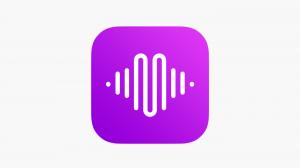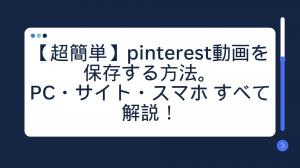WhatsApp is a freeware, cross-platform, centralized instant messaging (IM) and voice-over-IP (VoIP) service that is owned by the American company Meta Platforms and is available globally. It is also known as WhatsApp Messenger (formerly Facebook).
Users are able to communicate with one another through the exchange of text messages, voice messages, audio and video chats, as well as the sharing of images, documents, user locations, and other content. The client application for WhatsApp is accessible on mobile devices in addition to personal computers.
You are required to have a mobile phone number in order to register for the program. In January of 2018, WhatsApp announced WhatsApp Business, an independent piece of software for businesses that is able to communicate with the standard WhatsApp client.
The client software was originally developed by WhatsApp Inc. in Mountain View, California; Facebook purchased the company in February 2014 for around US$19.3 billion and took over its ownership. By 2015, it had already established itself as the most popular messaging app in the world, and by February 2020, it was projected to have more than 2 billion users all over the world.
By the year 2016, it had supplanted email as the preeminent form of Internet communication over the entirety of Latin America, the Indian subcontinent, and significant portions of both Europe and Africa.
Supported platforms
In November 2009, following several months of beta testing, the first official version of WhatsApp for iOS was released to the public. In January of 2010, support was added for BlackBerry handsets. This was followed by the addition of Symbian OS in May of 2010 and Android OS in August of 2010. In August of 2011, Nokia added a beta version of its Series 40 operating system for non-smartphones.
One month after that, support was added for Windows Phone, and then in March 2013, BlackBerry 10 support was added. In April of 2015, support for Samsung's Tizen operating system was enabled. The Nokia N95, which ran on the Symbian operating system and was released in March 2007, was the first mobile phone capable of running WhatsApp. (As of the month of June in 2017, it can no longer be used with WhatsApp.)
In August of 2014, WhatsApp released an upgrade that introduced support for Android Wear wearables with additional capabilities.
On January 21, 2015, WhatsApp Web, a browser-based web client that could be used by syncing with the connection of a mobile device, was made available to the public.
On February 26, 2016, WhatsApp announced that it would end support for BlackBerry (including BlackBerry 10), Nokia Series 40, and Symbian S60 by the end of 2016, in addition to supporting older versions of Android (2.2), Windows Phone (7.0), and iOS (6).
This announcement was made public on February 26, 2016. Then, the end of June 2017 was chosen as the new deadline for continued support of BlackBerry, Nokia Series 40, and Symbian. Although BlackBerry and Series 40 will continue to receive support till the end of 2017, support for Symbian will no longer be provided.
Support is provided for BlackBerry and older smartphones (version 8.0) Windows Phone and previous mobile platforms (version 6) On January 1, 2018, Apple decided to stop producing its iOS devices, although the life of the Nokia Series 40 was extended until December 2018. In July of 2018, WhatsApp made an announcement stating that it would soon be available for use on KaiOS feature phones.
In October 2019, WhatsApp will provide a new fingerprint app-locking functionality for users of the Android operating system.
In August of 2021, WhatsApp introduced a new function that enables users to move their chat history to and from different mobile operating systems. At first, the functionality was only available on Samsung phones, but there are plans to make it available on iOS and Android devices in the near future.
Web WhatsApp
As of the latter half of January 2015, WhatsApp became officially accessible on personal computers by means of a web client known as WhatsApp Web. This was confirmed by Koum on his Facebook page: "Our web client is merely an extension of your phone: the web browser reflects conversations and messages from your mobile device."
This means that all of your messages will continue to be stored on your phone even after using our web client. As of the 21st of January in 2015, users of Android, BlackBerry, and Windows Phone were the only ones who could access the desktop version. Support for later platforms such as iOS, Nokia Series 40, and Nokia S60 was eventually added (Symbian).
In the past, the WhatsApp user's handset needed to be connected to the Internet for the browser application to work. However, with an update in October 2021, this requirement was removed, and it is no longer necessary for the application to work. All of the major desktop browsers are supported, with the exception of Internet Explorer.
The WhatsApp Web user interface, which can be viewed at web.whatsapp.com, is modeled around the UI that comes standard with Android devices. Users obtain access when they scan their unique QR code using the WhatsApp mobile application on their mobile device.
There are comparable substitutes available for macOS, such as the open-source ChitChat application, which was once referred to as WhatsMac.
Users were able to access WhatsApp Web using the limited Android beta version that was made available in January 2021. This version did not require the mobile app to be connected to the Internet. In March of 2021, this experimental capability was made available to iOS users as well.
Customers' associated devices (via WhatsApp Web, WhatsApp Desktop, or Facebook Portal) will be disabled, however, if they do not use their phone for more than 14 days. Because messages on the web version were previously synchronized with the phone, the multi-device beta only allows messages from the previous three months to be displayed on the web version.
This was not the case before the beta was implemented. Users have not been able to retrieve their previous communications using the internet version of WhatsApp since April 2022, when the multi-device beta was made the default setting for the app.
WhatsApp now provides users with new search and purchasing options for local businesses
People want an easy method to find the businesses they're looking for among the millions of small businesses and tens of thousands of brands that are already on WhatsApp. People want an easy way to locate the businesses they're looking for. Users will now have the ability to search for businesses either by name or by category, with examples of categories being banking and tourism. Because of this, individuals no longer have to scour websites or their contact lists in order to find phone numbers to call.
We made business search with the intention of protecting people's privacy, and the information that you search for is handled in a way that prevents it from being linked to your account in any way. Individuals will be able to locate businesses through our WhatsApp Business Platform in the countries of Brazil, Indonesia, Mexico, Colombia, and the United Kingdom. This capability is being introduced for the first time in these countries. People in Brazil will also be able to locate local small businesses with the use of search.
As more businesses begin to use WhatsApp, we believe it is important for individuals to maintain control over their conversations. The assistance of persons in creating bank accounts, purchasing train tickets, and ordering food are just some of the new enterprises that have recently emerged on WhatsApp.





